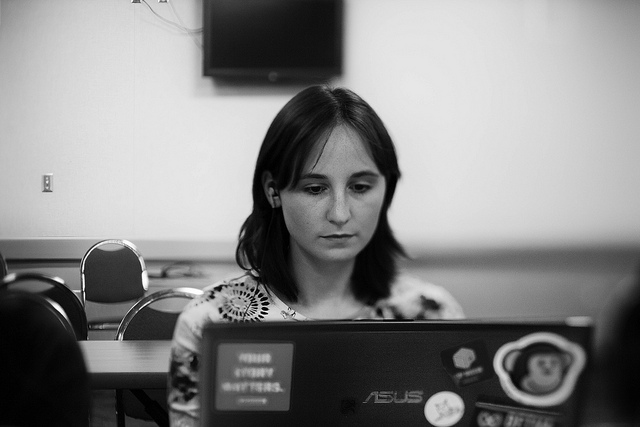I’m not an early adopter, nor was I an eager Facebook user. In truth, were it not required for work communication, I’d still be a “let’s meet for tea” sort of girl.
So even though the New Oxford American Dictionary chose “unfriend” as Word of the Year in 2009, I didn’t understand its meaning, nor its effect, until this week.
Unfriending someone from our online lives involves a mere click. Yet as Christopher Sibona found in a recent study, although “the cost of maintaining online relationships is really low … in the real world, the costs are higher.” In fact, his research discovered that 40 percent of people who were unfriended would actively avoid real life contact with the unfriender.
In the real world, we have to see each other, talk to each other and practice together in the same room. And we yogis are a close-knit bunch. Chances are we’ll see each other again and again and again. Most likely very soon.
So what’s a yogi to do?
As practicing students and teachers, we follow what Patanjali, the Father of Yoga, called the “eight limbs.” Long before we get to the third limb, asana or “postures,” we begin practicing the yamas and niyamas. I sometimes think of these as the Ten Commandments of Yoga. And the first rule is oh so simple: ahimsa, do not harm. This rule makes discernment easy. If a person in our social network is violating this rule with harmful posts or comments, harassments, stalking, perversions or spam, then yes, we should feel perfectly comfortable choosing the unfriend button and removing ourselves from harm.
But what if the person is just annoying, unresponsive or boring? What if they post pictures of their cat six times a day? Again, with ahimsa as a guide, we can go the friend’s page and hide his or her posts from our feed, or we can hide our own posts by putting the annoying little friend on a restricted list so our friend can only see and comment on our public info.
But here’s the thing—when a yogi unfriends us, it hurts. Especially if that person was our friend and our colleague and there hasn’t been a rift, an argument or a reason for the unfriending.
Being somewhat of a Facebook newbie, I decided to seek advice from an old school source. Turns out Emily Posts’s great-great-grandson Daniel Post Senning has some fresh advice on netiquette:
“The heart of etiquette and manners is how we treat each other. People are social animals and there will always be questions about how to behave. No matter how many devices we have, we still need each other.”
Yep. We need each other. Isn’t that the point of social media and social everything? Isn’t that why it actually hurts when someone we love and trust unfriends us?
So what’s a yogi to do?
As far as I can tell at the moment there are two obvious choices:
1. Decide we don’t care and don’t need to know why we were unfriended. Then let it go.
2. Decide we do care and do need to know. Then let it go.
I’m past being shocked and angered, and now I’m just sad. During this healing phase, I’m remembering what my teacher taught me—to be a yogi means being willing to be in inquiry. As the unfriended, I have to sit with this. I have to ask, “What is here for me to see?” Whether we are the one being unfriended, or the one itching to click that little unfriend button, it turns out the practice is the same as on our mat: stay present.
In my tradition we have a practice called a “clearing.” If there is a problem, we go to our yoga brother or sister and clean up the mess.
And so that is what I did. But he didn’t answer, so I left a message saying I’d love to talk and understand what happened. But he never called back.
Which brings me to the third option:
3. Realize we do care and that we won’t ever know. Then let it go.
Author: Linda Fenelon
Editor: Evan Yerburgh
Image: Flickr












Read 0 comments and reply